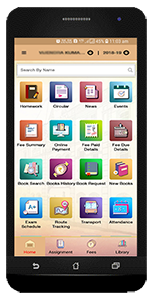Strategies for Student Success
Sun 30 Jun 2024 Category : General | Posted By : admin

With over two decades of experience in the realm of education, I've witnessed the profound impact that social and emotional learning (SEL) can have on students' overall well-being and academic achievement. In today's rapidly changing world, fostering students' social and emotional skills is not just a desirable add-on; it's an essential component of their holistic development. Here, I'll share some tried-and-tested strategies for promoting SEL in students, equipping them with the tools they need to thrive both inside and outside the classroom.
Create a Positive Classroom Environment: Establishing a supportive and inclusive classroom culture lays the foundation for SEL. Foster a sense of belonging by acknowledging and celebrating diversity. Encourage open communication, active listening, and mutual respect among students. Model positive behaviours and cultivate empathy by addressing conflicts constructively.
Integrate SEL into Curriculum and Instruction: Embedding SEL principles into daily lessons enhances students' emotional intelligence and interpersonal skills. Incorporate activities that promote self-awareness, self-management, social awareness, relationship skills, and responsible decision-making. Use literature, role-playing exercises, and group discussions to explore complex social and ethical issues.
Teach Emotional Regulation Strategies: Help students recognize and regulate their emotions effectively. Teach mindfulness techniques, breathing exercises, and relaxation strategies to manage stress and anxiety. Encourage reflection on emotional experiences and provide guidance on expressing feelings in healthy ways. Emphasise the importance of resilience and coping skills in navigating life's challenges.
Promote Collaboration and Cooperation: Collaborative learning experiences foster teamwork, communication, and problem-solving skills. Incorporate group projects, peer mentoring, and cooperative learning activities to encourage collaboration. Provide opportunities for students to work together towards common goals, building empathy and understanding in the process.
Encourage Self-Reflection and Goal Setting: Cultivate a habit of self-reflection and goal setting among students. Encourage them to identify their strengths, weaknesses, and areas for growth. Help them set realistic, achievable goals and develop action plans to work towards them. Celebrate progress and provide constructive feedback to support continuous improvement.
Offer Social Skills Training and Peer Mediation Programs: Provide formal instruction in social skills such as active listening, conflict resolution, and assertive communication. Implement peer mediation programs where students can resolve conflicts with the guidance of trained peers. Empower students to take ownership of their relationships and create a culture of empathy and understanding.
Engage Families and Communities: Collaboration between schools, families, and communities is essential for holistic SEL implementation. Keep parents informed about SEL initiatives and involve them in supporting their children's social and emotional development at home. Partner with community organisations to provide additional resources and support for students' well-being.
By prioritising social and emotional learning, educators can empower students to navigate complex social dynamics, regulate their emotions effectively, and cultivate meaningful relationships. These strategies not only enhance students' academic success but also equip them with essential life skills for future personal and professional endeavours. As educators, let's commit to nurturing the whole child and fostering a culture of empathy, resilience, and compassion in our schools and communities.


